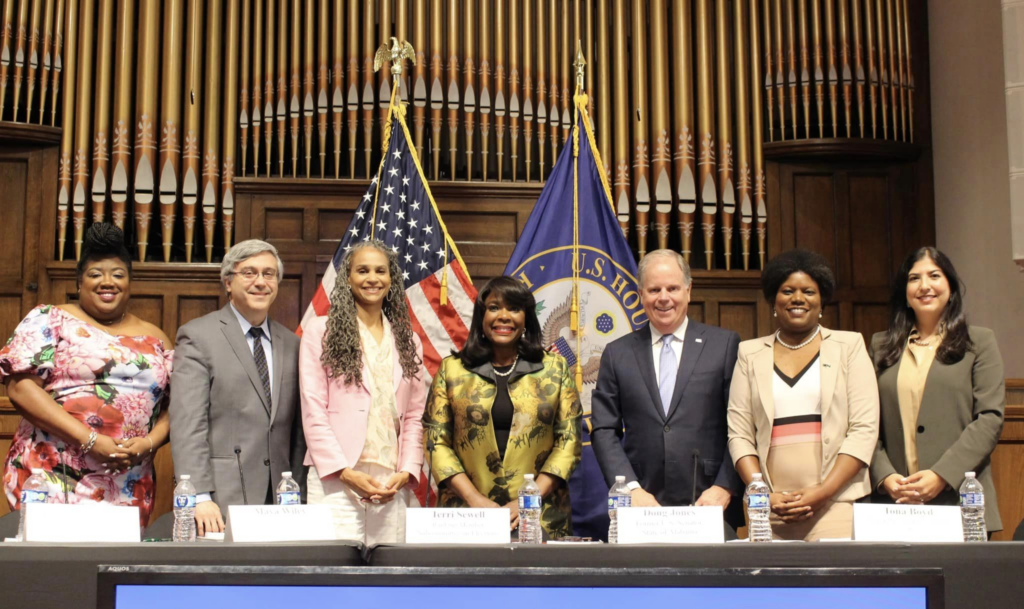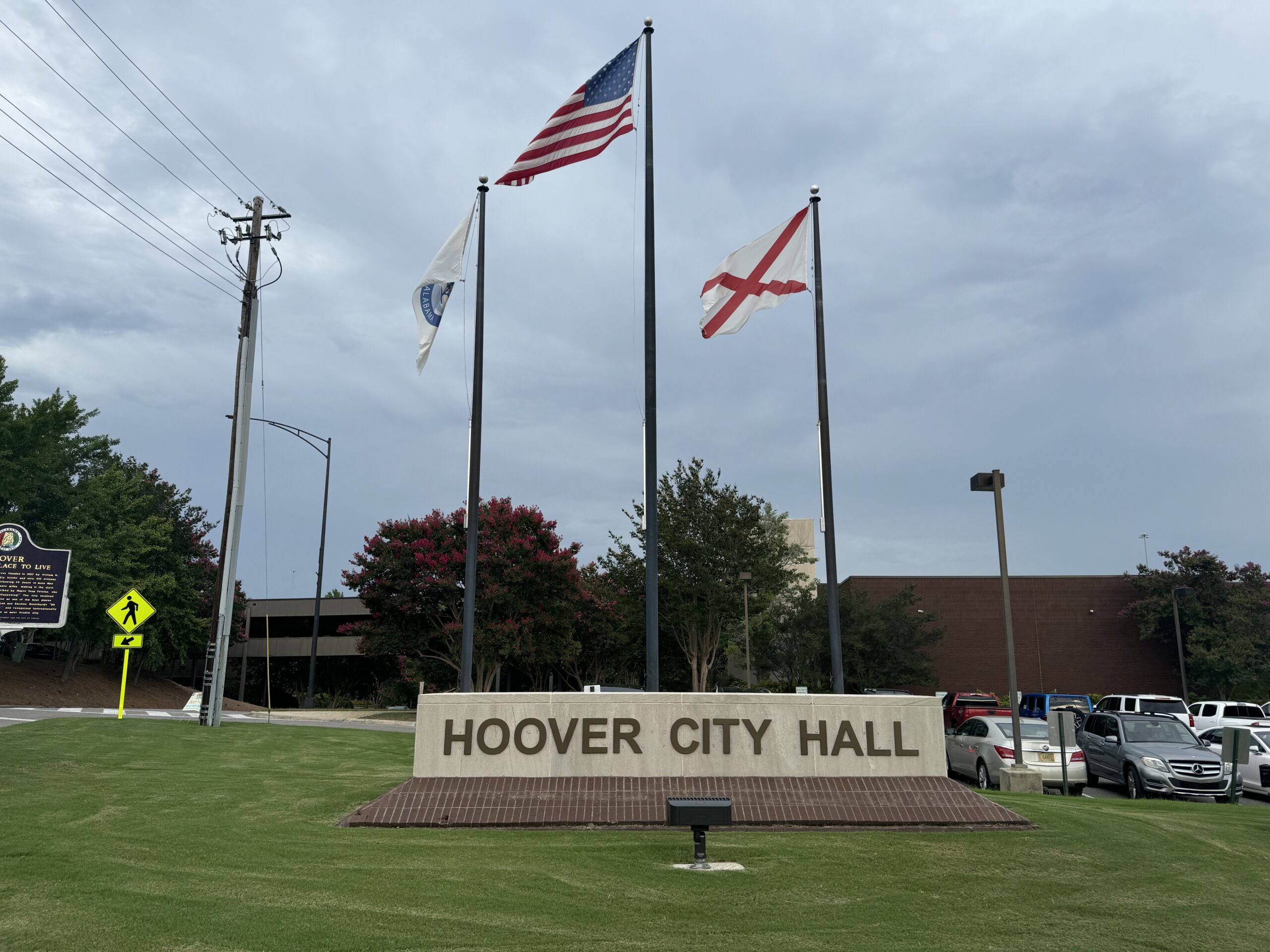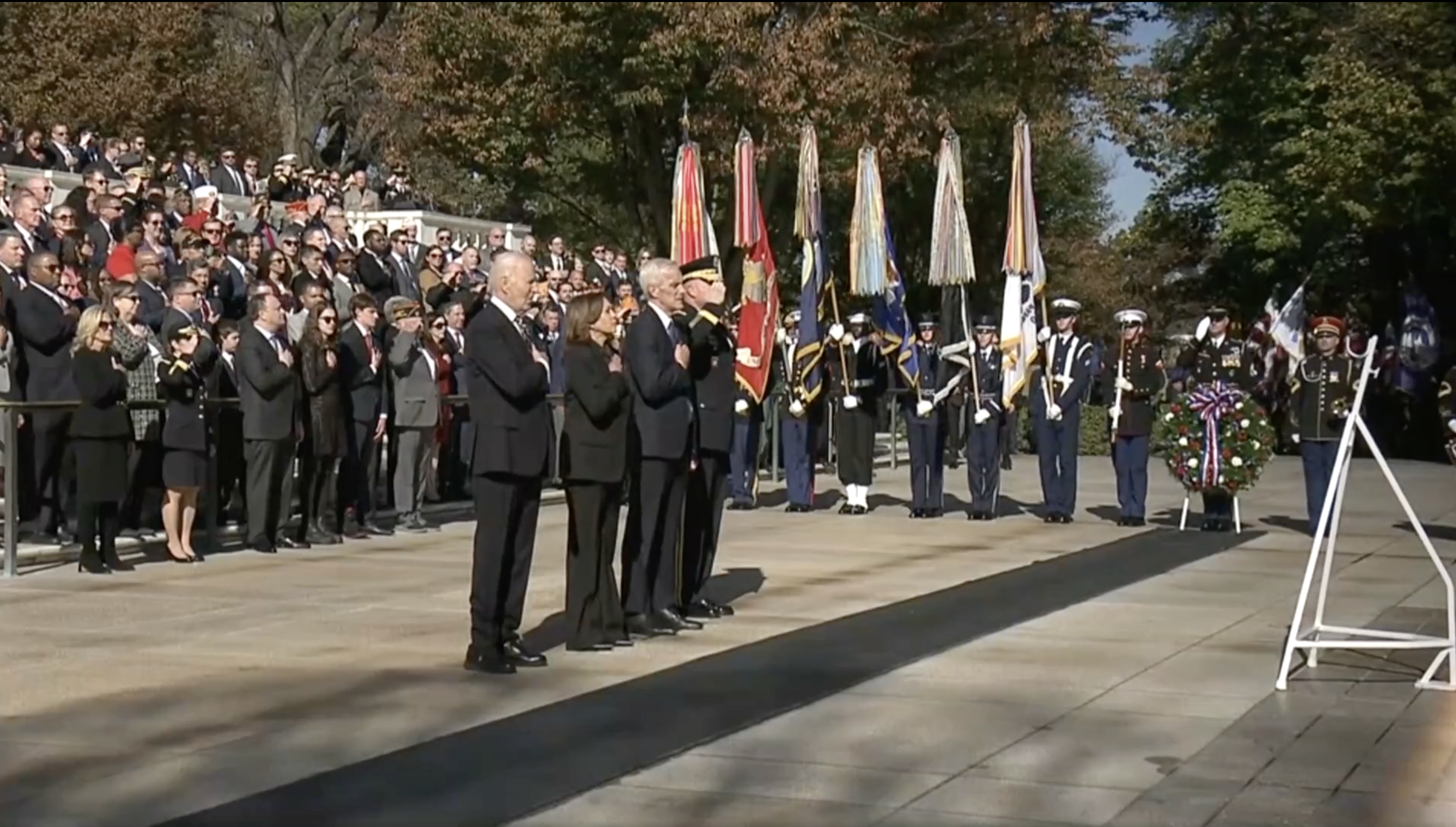On Wednesday, Congresswoman Terri Sewell (D-AL07) led a symposium in Birmingham on the landmark Supreme Court ruling Shelby v. Holder that struck down the preclearance section of the Voting Rights Act 1965.
“This morning, I convened some of our nation’s premiere civil rights and voting rights leaders at the 16th Street Baptist Church to commemorate the 10th anniversary of the Shelby County v. Holder decision which gutted the Voting Rights Act,” said Sewell on Facebook. “In the decade since the Shelby decision, one thing is clear—old battles have become new again as the right to vote has come under attack. But we in Alabama have seen this before and we’re not going down without a fight. The Foot Soldiers left us a blueprint to protect their progress and advance it. Drawing courage from their sacrifice, we will protect the right to vote in Alabama and across the country.”
Sewell was joined on Wednesday by President & CEO of The Leadership Conference on Civil and Human Rights Maya Wiley, former U.S. Senator Doug Jones, the President & General Counsel of the Mexican Americans Legal Defense Fund (MALDEF) Thomas A. Saenz, the Associate Director-Counsel, NAACP Legal Defense Fund (LDF) Tona Boyd, Staff Attorney, Native American Rights Fund (NARF) Jacqueline De Leon, Birmingham Civil Rights Institute President & CEO DeJuana Thompson, the executive director of Alabama Forward Evan Milligan, the Co-Founder & Executive Director of Black Voters Matter Cliff Albright, the Vice President of Census & Voting Programs for Asian Americans Advancing Justice (AAJC) Terry A. Minnis, the Co-Director of the Voting Rights Project for Lawyers’ Committee for Civil Rights Under Law Marcia Johnson, and the Alabama Policy Director for the Southern Poverty Law Center Jerome Dees.
“The Shelby decision was decided in 2013,” Sewell said. “It had tremendous ramifications. The disastrous decision in Shelby versus Holder gutted key provisions of the Voting Rights Act of 1965,” Sewell said. “The preclearance section stopped really restrictive voting laws before they went into effect.”
“The Leadership Council on Civil and Human Rights is the lobbying arm of the civil rights movement,” President Wiley said. “Barack Obama won in 2008, and that was the beginning of the end of bipartisanship on voting rights.”
“In 2006, George Bush supported, and very few members of Congress were willing to oppose, extending the Voting Rights Act,” Wiley said. “After Obama’s win, things changed. Instead of contesting for our votes, they made it harder for us to vote,” Wiley said.
Sen. Jones said, “Terri has become, since the death of John Lewis, the champion of voting rights in the U.S. Congress.”
Jones said that in the effort to make it harder to vote, “we (the state of Alabama) have kind of led the way.”
Jones said that Alabama has a “very restrictive voting law.”
“Alabama has done a good job of registering people, but we have made it very difficult to vote,” Jones said. “Our voting is still below the national average, even in Georgia.”
“Racial turnout gaps have increased in Alabama over the last ten years,” Sewell said. “I am proud to be the lead sponsor of the John Robert Lewis Voter Protection Act. Restoring preclearance is the key to unlocking a lot of the voting suppression laws that we have.”
Saenz said the Shelby v. Holder ruling gave “a green light to further restrict people of color, blacks, and Latinos.”
“But for Shelby County, Texas would be a swing state today,” Saenz said. “The Voting Rights Act was the most effective federal civil rights law in United States history.”
Since Shelby County v. Holder, Saenz said it is much more difficult for MALDEF to be aware of voting process changes, especially at the local level.
“A pronounced lack of transparency in what is happening at local levels across this country to suppress minority voters across this country,” Saenz said. “We don’t know about some of these changes until it is too late to go into court to do something.”
“There are five states where the Black population is rising faster than the Hispanic population, and Alabama is one of those states,” Jones said. “20% of the Black population is under the age of 20. Times are a changing, and the people on the other side know it.”
Jones said that nonpartisan committees for redistricting congressional seats and legislatures is a change that is needed.
“Congress needs to pass some minimal standards for early voting,” Jones said.
To connect with the author of this story or to comment, email brandonmreporter@gmail.com.
Related
Share via:














